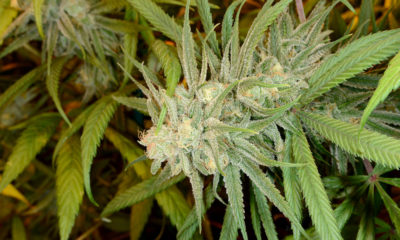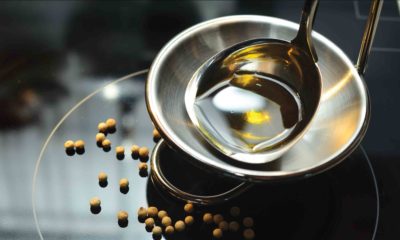
Hemp
New Laser Distinguishes Between Hemp & Marijuana
The defining factor of what makes hemp different from marijuana is the presence of THC. Researchers are trying to analyze a plant’s THC via a hand-held laser.
Since industrial hemp was made legal in the United States, police forces have been scrambling around trying to figure out the difference between it and its outlaw cousin marijuana. It’s part of the reason that hemp was lumped into prohibition in the first place. Back then, lawmakers were concerned that people would use the guise of a legitimate crop to get away with growing pot. Because, well, the two plants are basically the same. They are both similar in appearance and have the same skunky odor. The difference is hemp is defined as having less than .3% THC.
Senate Majority Leader Mitch McConnell didn’t give much consideration to the confusion factor a couple of years ago when he worked his political magic to bring industrial hemp back from the dead.
It’s caused a veritable crap storm, too, in states where hemp is legal.
Police have been unwittingly busting hemp operations left and right thinking that they are bringing down gangs of mega-pot-smugglers, only to find out later that they screwed the pooch. It’s caused prosecutors all over the country to start dismissing cases for petty pot possession. Because without extensive, time-consuming tests to determine the difference between hemp and marijuana, it is difficult to prove whether an offender is actually breaking the law.
A team of scientific minds from Texas, a state that has experienced its fair share of fumble-nut jumbles as a result of legal hemp, believe they have come up with a solution to the problem. Researchers at Texas A&M University College of Agriculture and Life Sciences say they have a contraption that can eliminate all of the guesswork and laboratory snags associated with identifying hemp.
It’s a portable hand-held laser that is capable of determining with “100% accuracy” whether suspect plant material is hemp or weed.
Essentially, the tool utilizes the same technology (Raman spectroscopy) that has been applied for years when farmers need to quickly test plants for diseases and nutritional value. In the case of hemp, researchers say the laser can illuminate plant structures (revealing THCA content), which would immediately show law enforcement exactly which version of the plant they are dealing with.
“A hand-held Raman spectrometer can be an ideal tool for police officers and hemp breeders to enable highly accurate diagnostics of THCA content in plants,” researchers explained in the journal RSC Advances.
At this point in the game, the only tool cops have for the job is something known as high-pressure chromatography (HPLC). The only problem is this test isn’t something that can be used in the field. Samples must be sent off to a lab, a process that often sees pot cases getting bumped to the bottom of the list because analysts are typically too busy trying to help solve a heaping backlog of murder and rape cases. Most Americans wouldn’t have it any other way. After all, it’s their tax dollars at work.
More than anything, though, these lab tests are a waste of resources.
“These sophisticated tests are destructive, time-consuming and can only be performed in certified laboratories,” researchers told the Fort Worth Star-Telegram. “This drastically delays the times of analysis for potential drug substances.”
Interestingly, the device can also pinpoint specific strains (and their quality) by measuring the THC content. A similar test allowing hemp farmers to monitor CBD quality is also in the works. Researchers believe that by allowing farmers to see exactly how much CBD is present in their crops, it will enable them to get a fair price when the time comes to take those plants to market.
“Our colleagues, the farmers, were positively surprised that we could identify the variety with 98% accuracy,” Dmitry Kurouski, Ph.D., assistant professor of biochemistry and biophysics at Texas A&M, told Science Daily. “That blew them away.”
For now, law enforcement will continue to struggle. And unfortunately, that means more people will be mistakenly dragged to jail. Although this device might eventually make their jobs easier, more research is needed before that is guaranteed. It could still be another three years before these devices are in mass production. So, expect this problem to get worse before it gets better.
TELL US, can you explain the difference between hemp and cannabis?























